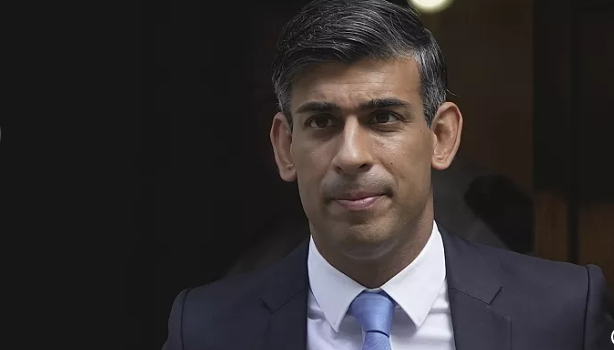
Following adjustments to green policies, Sunak insists the UK remains on track for 2050 net zero goals, despite warnings from climate experts of potential setbacks.
Prime Minister Rishi Sunak remains steadfast in his commitment to achieving the UK’s net zero targets, despite criticism from his own government’s climate advisers labelling his approach as “wishful thinking.”
In a BBC interview, Mr Sunak defended recent changes to green policies, asserting that he has not delayed climate action. His statements follow significant modifications to the UK’s environmental commitments, which the Climate Change Committee (CCC) has condemned as regressive.
The prime minister expressed “confidence” in the UK reaching net zero by 2050. To reinforce his stance, he announced adjustments to key green policies, including a five-year postponement of the ban on new petrol and diesel car sales, as well as increased incentives for replacing gas boilers. The changes, seen as a political move to draw clear distinctions from Labour, come as the Conservative Party seeks to regain voter support ahead of the next election.
In recent weeks, Mr Sunak has hinted at a more “pragmatic” approach to net zero, emphasising the costs associated with low-carbon technologies like electric vehicles. However, the CCC had previously warned that the UK was already behind on its net zero commitments, with CEO Chris Stark suggesting the government lacks the necessary policies to meet its legally binding climate objectives.
While Mr Sunak acknowledged that achieving net zero requires more than “wishful thinking,” he argued that previous targets were set without “honest conversations” about the necessary steps. Nevertheless, he faced criticism over his claims of scrapping proposals to increase air fares and tax meat, which were never official policies. This prompted questions from the BBC’s Nick Robinson about whether Mr Sunak was being transparent.
Taking aim at the CCC, Mr Sunak accused the committee of subtly recommending measures like car-pooling mandates and reduced meat consumption. In its 2023 report, the CCC advocated for “low-cost” measures to reduce meat consumption by 20% by 2030, without proposing a tax.
When asked if his approach mirrored former Prime Minister Liz Truss’s tendency to ignore expert advice, Mr Sunak responded that he welcomed diverse opinions and remained “confident” that the UK would reach its targets, even in the face of potential legal challenges.
Despite accusations that these changes are politically motivated, Mr Sunak asserted that his focus is on a long-term vision for the UK. Labour, however, argued that these policy rollbacks would lead to higher long-term costs, with shadow energy secretary Ed Miliband vowing to challenge the Conservatives on climate policies in the upcoming election.
Labour confirmed its commitment to phasing out new petrol and diesel cars by 2030, accentuating the divide between the two parties. This year’s extreme weather events have highlighted the urgent need for climate action. Under the Paris Agreement, 197 nations, including the UK, agreed to limit global temperature rises to 1.5°C by 2100. Scientists stress that net zero emissions are essential by 2050, though the United Nations has urged countries to expedite these timelines.
While the UK accounts for just 1% of global emissions, it has previously been a leader in carbon reduction efforts. However, Mr Sunak’s policy adjustments have raised concerns about the UK’s climate leadership, with activists and some Conservative MPs questioning his commitment. Former Conservative minister Sir Alok Sharma expressed unease, warning that the UK’s perceived backtracking could influence other nations to reconsider their own commitments.









